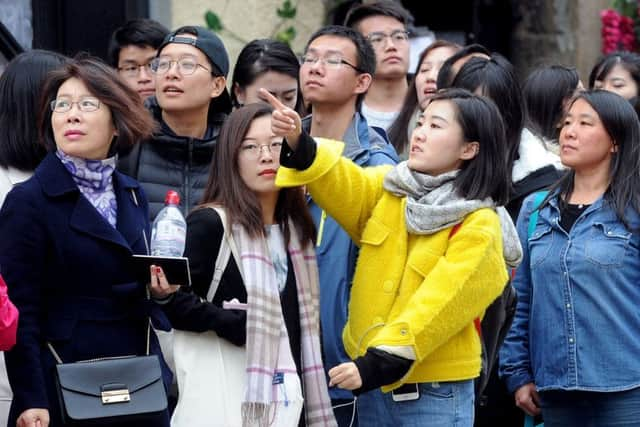Tourist tax could help Edinburgh ‘dream big again’
Richard Lewis, a leading SNP councillor in the city until the last election, says the revenue from the new tax – expected to be £14.6 million a year – should all go into a special fund to be used exclusively for culture and events. And he said it could allow Scotland’s capital city to “dream again” about possible projects.
He said: “Let’s not forget, it is culture and events which bring much of the wealth to Edinburgh and signifies its USP to the outside world. Yet there has been largely cosmetic spend over the last 20 years – on restoring the Usher Hall, Assembly Rooms and some of the city museums and libraries – with no major new cultural piece of infrastructure being built since perhaps the Traverse Theatre in the 1960s.
Advertisement
Hide AdAdvertisement
Hide Ad“Meanwhile, major structural work will be required on the King’s Theatre, the Central Library, the Lyceum and Traverse theatres, the Filmhouse, the Leith Theatre and the council museums and galleries – to mention just the best known.


“And that’s before one begins to consider plans for new venues – something of a necessity in a city in which the vast majority of our cultural estate was built pre-1945.”
He said since the 2008 financial crisis it was almost impossible to argue for spending on a cultural or entertainment venue when schools and health and social care were crying out for cash.
“Therefore, with both national and local government finances only likely to deteriorate further with Brexit, the cultural levy has now become a necessity.”
Mr Lewis, a professional musician, also argued the fund should not be managed directly by the council but by a group made of councillors, hoteliers, the tourism sector and people from the city’s cultural and events community.
He said such an arrangement would mean discussions about new investment would be “outwith the usual political process” and “long-term decisions about cultural priorities could be made in an atmosphere of relative calm”.
Mr Lewis said other countries, like France and Germany, had increased spending on arts and events over the last decade and China had a five-year plan to invest tens of billions on infrastructure and artistic content.
“Setting up the cultural levy will not a be panacea for everything, but it will perhaps allows us once again to bring ‘ambition’ back to the political vocabulary.
“The council has agreed tourist tax revenue should be used for “additional sustainable investment in supporting and managing the impacts of tourism”.